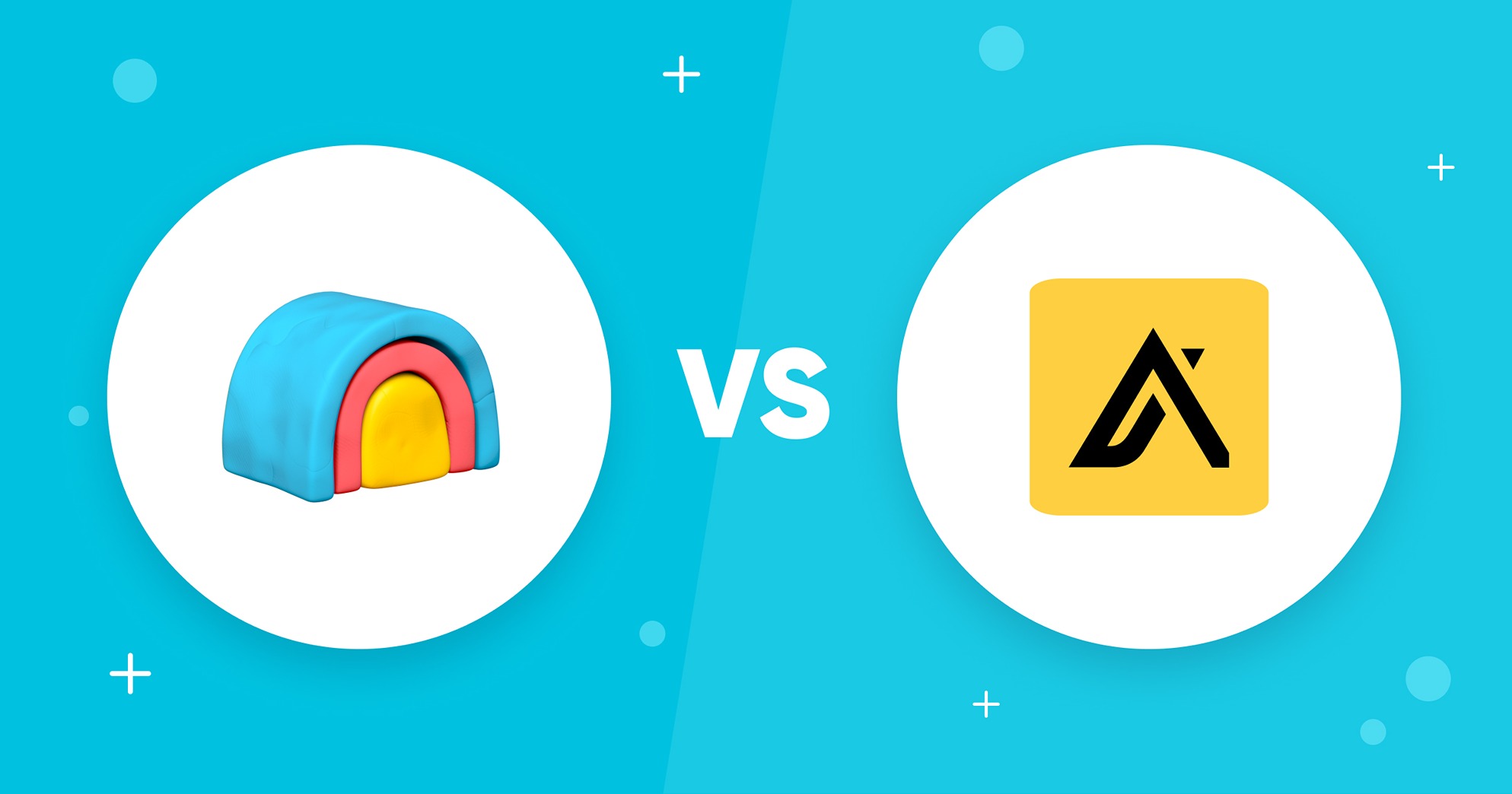After Steven Sashen discovered the joys of barefoot running, he started making his own huaraches running sandals so that he could run unencumbered. One thing led to another, and Steven found himself setting up a footwear company with his wife, Lena. Xero Shoes quickly took off; the company is on track to make $8.5M this year, and Steven and Lena have ambitious plans to snag themselves a bigger share of the $200B dollar market they’re in.
In this UpLead Growth Chat, we sat down with Steven to pick his brain on how he created his first product, dealt with various IP issues, and grew Xero Shoes to be the extraordinary brand that it is today. To jump to specific segments of our interview, click on the relevant links from the Table of Contents above.
Early career and personal growth
Will: Before Xero Shoes, you founded Cinovation, Inc., which publishes Scriptware, the “industry-standard word processing software for film and TV writers”. Did you start this company straight out of college? Tell us more about your journey here.
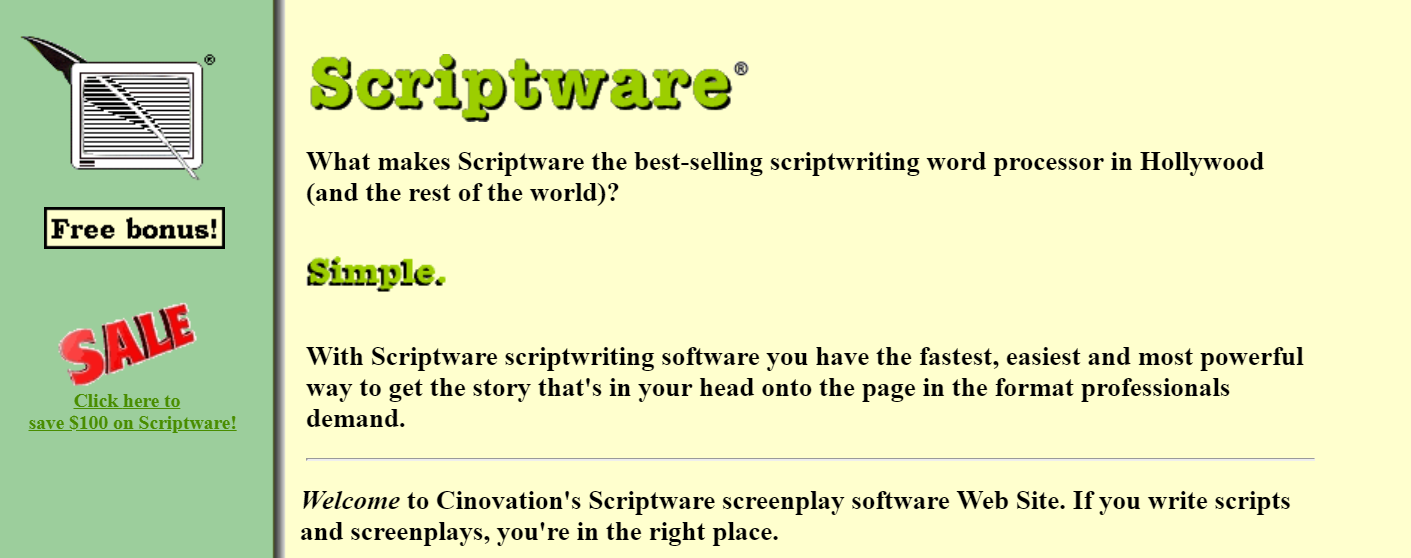
Steven: I got a Masters degree in film from Columbia University, focusing on screenwriting. Scripts have a very particular and arcane set of formatting rules. If you don’t make the script look right, it won’t get read. I didn’t like the software that existed for getting your script into the right format and, one day, in the shower, had a brainstorm.
I realized that each scriptelement — a character’s name, their dialogue, the description of what happens onscreen, etc. — had a unique relationship to the other elements and to the page. And if the computer knew what element you were typing, it could handle all of the complex formatting and pagination with no extra keystrokes or macros or special commands.
I found some programmers to put my idea into reality — basically, we invented a rules-based, context-sensitive, object-oriented database that acts like a word processor — and started Cinovation.
Oh, did I mention this took 2 years and all the money I had? 😉
Will: Are you currently still running Cinovation? If yes, how much time are you spending on it? How much does the company make in revenue per year?
Steven: The program is still alive but in a coma. I help existing customers, and I’m currently redeveloping the program using new coding technology. I’m hoping to re-launch Scriptware in a few months and have a way to do that which won’t take much, if any, of my time.
The story behind Xero Shoes
Will: In 2009, you started Feel The World Inc to produce Xero Shoes. On your website, you state that the company began, almost as a joke, in a corner of a spare bedroom. Tell us more about how you came up with the idea of Xero Shoes, and how it all started.
Steven: It’s a pretty long story, but here goes… I got into sprinting at the age of 45 after a 30 year break. For about two years I was constantly getting injured, and a friend suggested I try barefoot running as a cure for my injuries. He also handed me a copy of Born To Run by Christopher McDougall.
I look around online, found the Boulder Barefoot Running Club, and joined one of their weekend classes. During the class, I was so fascinated and transfixed by the feelings of having my bare feet on the ground, of experimenting with my gait to see what the effects would be, that I didn’t even notice that we’d run over 5k.
Now, that may not sound like a lot to some of you, but I’m a sprinter. I run the 100m. My longest run until then was about a mile… and I didn’t like it.
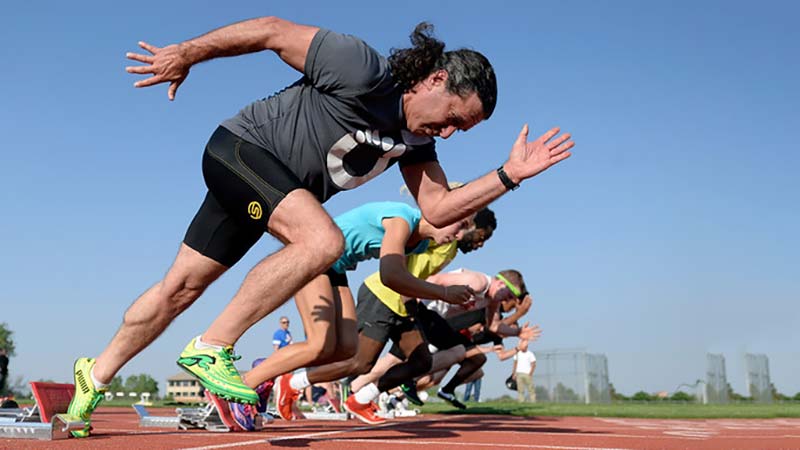
Anyway, now that I realized taking off my shoes did lead to the elimination of my injuries, I wanted to go barefoot all the time. Obviously, this wasn’t practical – there are places you can’t get into when you have no shoes, and some surfaces aren’t amenable to being barefoot.
So, inspired by Born To Run, I decided to make my own huaraches running sandals. I picked up some hi-tech rubber sole material, some eye-popping cords and, made myself a pair. When the other runners saw my huaraches, they asked for their own… and we eventually held an impromptu huarache-making party on the sidewalk of the University of Colorado.
After making huaraches for most of the local barefoot runners, my then-coach Michael Sandler said, “These are great. You should make this your business.” I dismissed the idea, but Michael told me — “If you had a website, I’d put you in the barefoot running book I’m writing.”
I was so excited, I rushed home and pitched this idea to Lena, my wife.
“Ummm…” she said, “I think that’s a horrible idea. We have a lot of other things going on and this would just be a distraction.”
“Yeah, you’re right,” I said. But after she went to bed, I built a website 😉
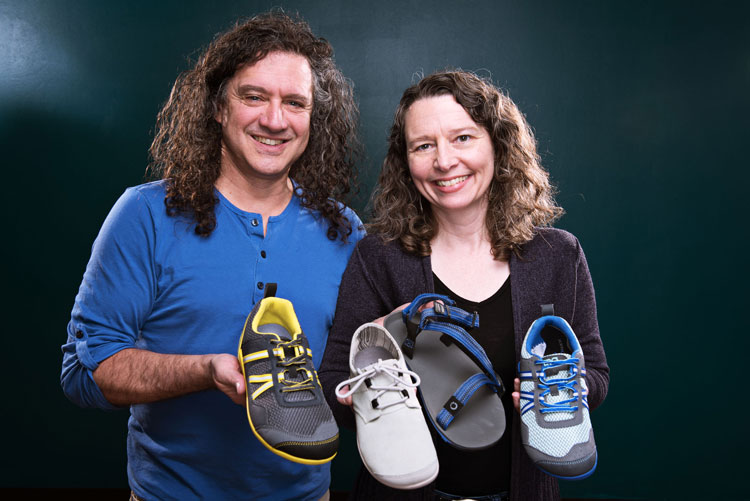
Two weeks later, Invisible Shoes (our original name) was born. Within three months, this was our full-time job. Three months later, we had the former lead designers from Nike and Reebok sitting at our kitchen table – I mean, conference room table! – designing our new FeelTrue® outsoles and laying out a business plan for us. And things have been flying ever since
In 2013, Dennis Driscoll joined our team. Dennis was a co-founder of Avia Athletic Footwear and was the head of global product design for Crocs. He’s worked for Converse, Wilson, DKNY and many other companies, and his shoe designs have sold millions of pairs.
With Dennis’s help, we grew from only having a do-it-yourself sandal making kit to having a complete line of casual and performance shoes and sandals that people use for everything. And when I say everything, I mean everything – people use our footwear to go to their yoga or CrossFit class, go hiking, and even run a 256k race across Madagascar.
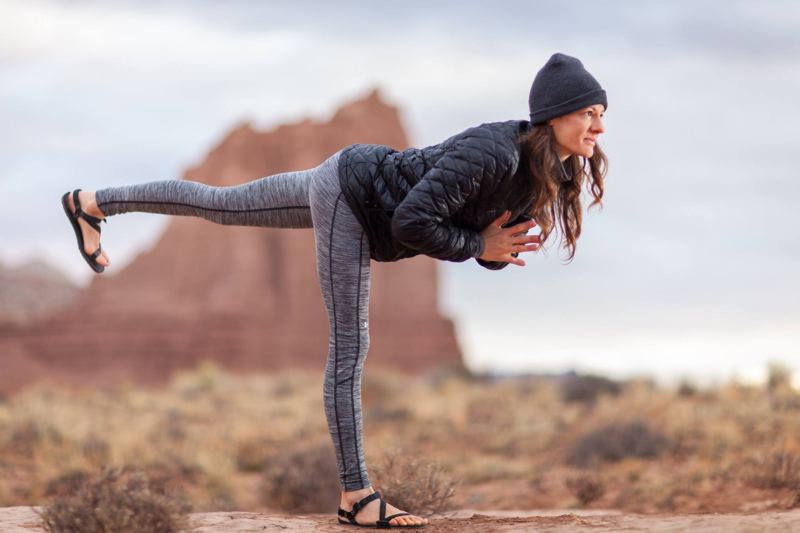
All in all, we have the pleasure of having sold hundreds of thousands of pairs of Xero Shoes to people in over 97 countries, from ages 1-91. And we get emails every day from people who tell us how they’ve had the same kinds of wonderful, and sometimes life-changing experiences that we did.
On product development, IP issues, and building a community
Will: You patented your shoes pretty early on – have you ever encountered any IP problems, or has anyone tried to knock your products off?
Steven: Yes, we have a design patent on our soles, and other design and utility patents as well. One IP “problem” was when a competitor had designed a product that completely infringed on our patent. We were both at a trade show, and after seeing this product at their booth, I told them:
“Look, I know you’ll think I’m an a-hole when I say this, but I PROMISE I’m just trying to save you a lot of heartache and want to make sure a federal judge doesn’t decide whether you can stay in business or not: Don’t make that shoe. Look at ours and hopefully you’ll understand why I say this, but you’re infringing on our patent.”
They did, in fact, think I was a total ass… and spent 5 minutes yelling at me. But 3 days later, they called and said, “My apologies. Thank you so much for sparing us.”
We’ve had other IP problems as well – big companies stealing our trademarks, for example (we prevailed and got them to stop), companies petitioning to have some of our marks revoked (we won a few of those cases and are still battling a few). It’s all part and parcel of business, I guess.
Will: You have a ton of rave reviews about your shoes and sandals, but have you ever encountered any customers who don’t like your products, and leave nasty reviews on your site or social media? How do you deal with these customers?
Steven: Of course. Not everyone loves everything.
“Thanks to the anonymity of the Internet, people love to complain LOUDLY.”
When we get a negative review, we respond to it, both publicly and directly to the person (when we can). We do our best to help them have a positive experience, even if it means that they return the product. And when we can’t help — sometimes it’s a no-win situation — we try to make our side of the story known so that readers can, hopefully, see that we did the best we could.
Will: Your Xero Shoes products with FeelTrue® soles have a 5,000 mile sole warranty. How many returns do you get under this warranty? Have there been cases of customers abusing the warranty or trying to game the system?
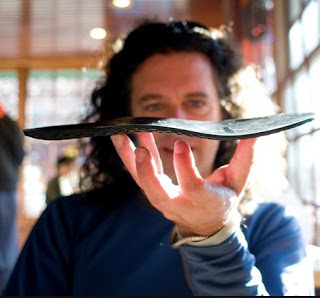
Steven: The 5,000 mile sole warranty came from people asking, “How long will these last?” And at the 2 year mark, our answer was, “We don’t know; nobody has worn out a pair yet.” Plus, since we were inspired by the tire sandals made by the Tarahumara Indians in Mexico, I thought a tire-like warranty would be appropriate. Also, we deliberately made our soles to be highly abrasion resistant and long-lasting.
To answer your question, no, we don’t really see customers trying to game the system. To date, we’ve only had a handful of people wear out their shoes and, often, when they do they’ll simply buy another pair because they’re so impressed with the product.
Will: How do you increase customer retention, and get your customers to purchase more shoes and sandals?
The “strategy” for increasing purchasing is simple:
“Make a product people like, make more that they’ll like, and remind them that you have things they like.”
That said, we also have a comprehensive post-purchase email marketing campaign that we run. I’d love to share more, but it’d take me 2-3 days to elaborate on the entire campaign (in fact, there’s a 2-day workshop from BrandGrowthExperts.com that details much of our email campaign).
Will: What is the one thing that the team struggled with the most in your early days? What is the thing that you’re struggling the most with right now?
Steven:
“We’ve always struggled with the same thing: getting the capital to handle our growth.”
More specifically, we’ve run out of inventory every year for the last 4-5 years. On top of that, we haven’t had enough cash to do some of the marketing we’d like to do, especially campaigns that pay off after the 2nd or 3rd sale (rather than the initial sale).
Will: You’ve got a community of Xero customers called Xero Circle. What tips can you give to a startup founder who wants to, like you, build a community?
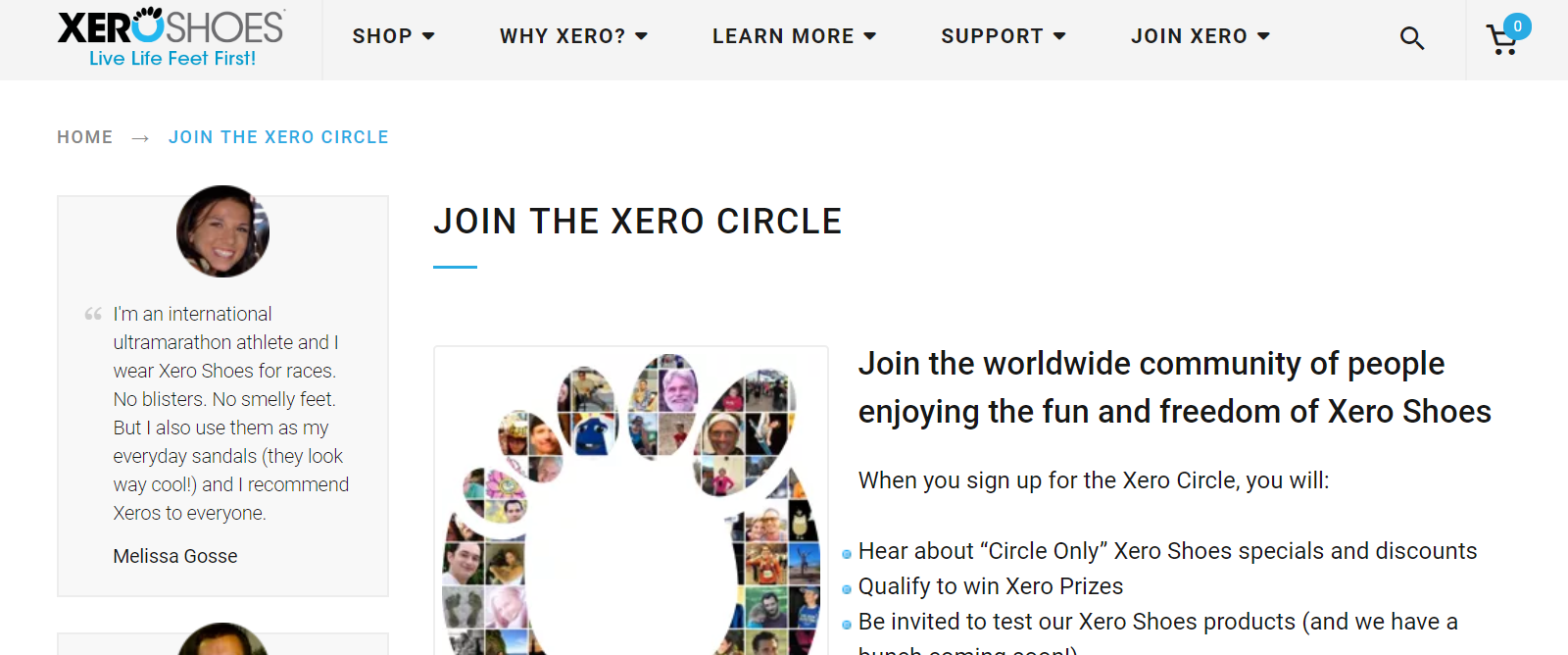
Steven: The key to building a community is simple – give people a reason to join. I don’t just mean discounts or access to sales, by the way…
“People want to be PART of something. Give them a chance to do that.”
For instance, we ask people in the Xero Circle for advice about products, or colors of products. We give them “secret missions.” We feature them in our newsletters. All that helps us to nurture relationships with our customers.
On Xero Shoes’ evolution, and how it’s looking to take on a $200B market
Will: What are the three most important metrics that you monitor at Xero Shoes?
Steven: Cost per acquisition. Return on ad spend. Sales/returns/exchanges.
Will: What three factors would you attribute your company’s success to?
Steven: When I got my film degree, the late-director Milos Forman was a teacher. Someone asked him how you make a great movie.
He said, “90% is casting. And the other 10% is casting.”
I feel that way about business: 90% is LUCK. And the other 10% is luck.
“Then there’s a whole OTHER 100% that’s working your butt off.”
Will: How has the company evolved from when it was first launched? How do you decide what new products you want to push out?
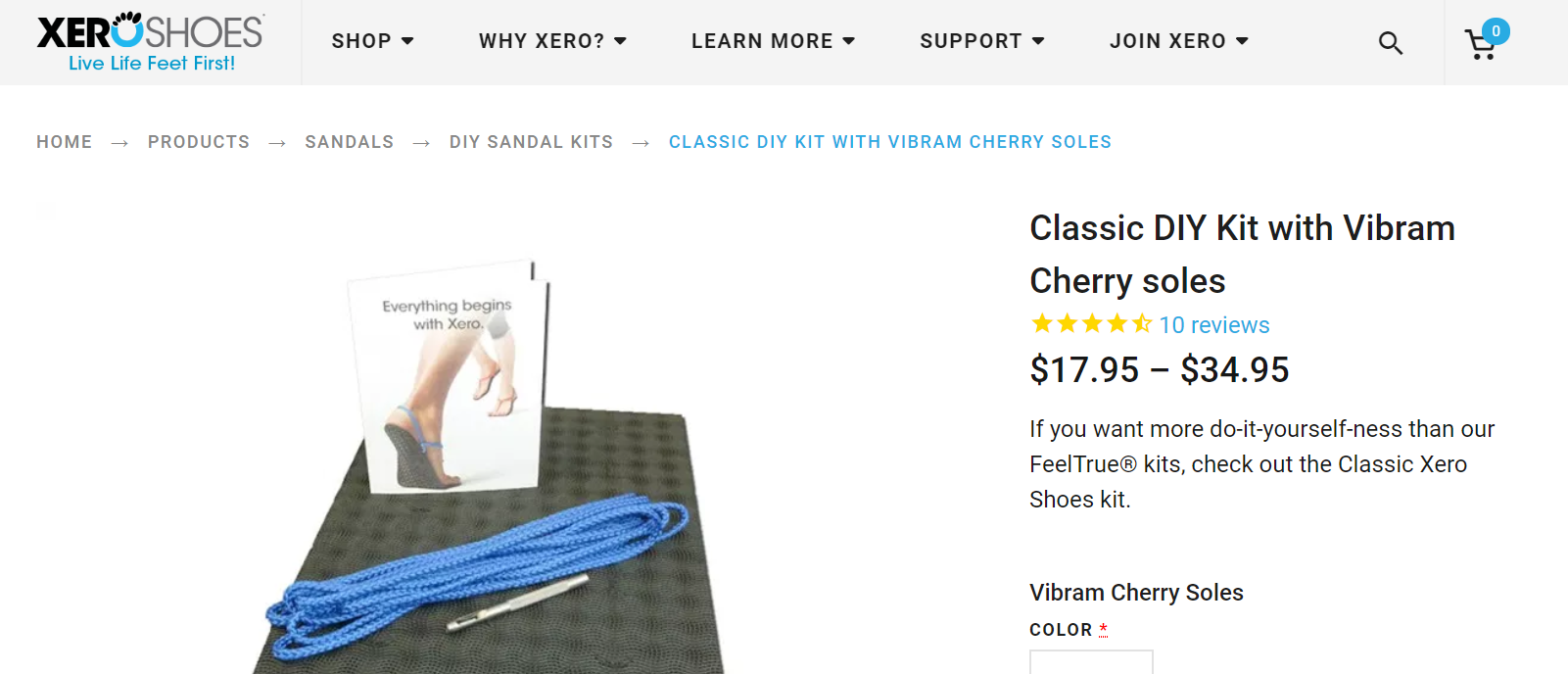
Steven: Well, we started with nothing but a DIY sandal kit. Now we have a complete line of casual and performance shoes and sandals. We expand our line based on two things:
- Requests from customers
- Our understanding of “holes” in the line
Will: What is the company doing in yearly revenue now? What are your revenue goals or other goals moving forward?
Steven: In 2017, we did $5.53M. For 2018, we’ve projected that we’ll hit $8.5M. I can’t give your our specific financial goals, but the total addressable market (TAM) for what we’re doing is about $150-200B.
Revenue aside, our overarching objective is: we’re trying to make natural movement (and the footwear that supports it) as the obvious, better, healthy choice in the same way that natural food currently is.
Lifehacks, sources of inspiration, and tips on relaxation
Will: You’re a Masters All-American sprinter, and one of the fastest men over the age of 50 in the US. What are some of the life lessons you’ve learnt from running? Are any of these lessons you’ve learn applicable to the world of entrepreneurship?
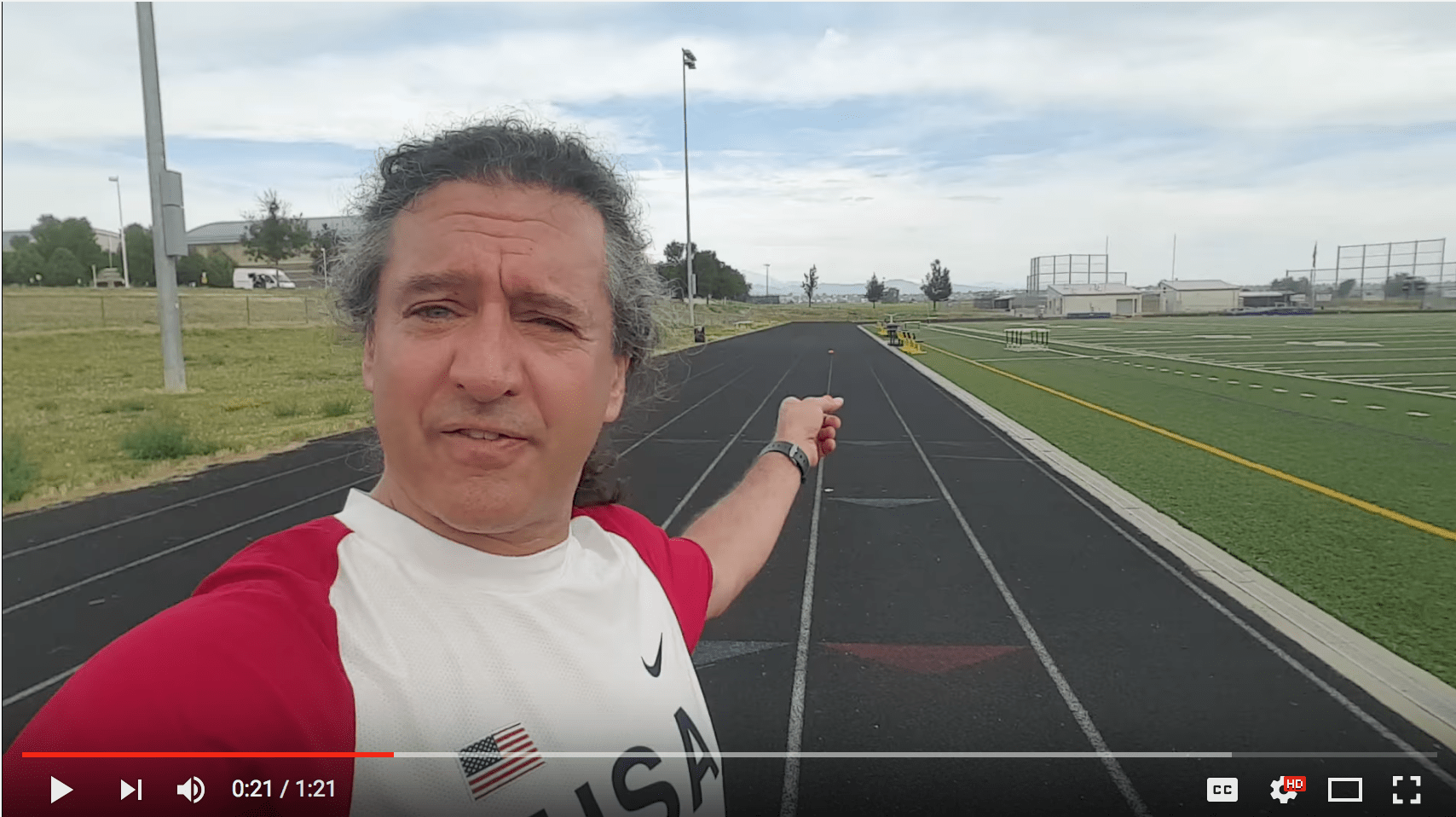
I don’t want to sound too glib by saying things like “One step at a time.”
More than life lessons, I’ve recognized parts of my personality that are related to being a sprinter and that I bring to business… not always in a good way.
For example, as an individual sport athlete, I have the belief that the best person (or idea) wins. But that’s not true. If for no other reason than if you come up with a better idea than a competitor, they won’t simply acknowledge that you won (like they would in a race). They may take devious actions to shut you down.
My natural optimistic inclination doesn’t prepare me for events like that. I have to work hard to think about how others might react in ways that I would never imagine. It’s not easy and I probably do it wrong, or not enough, more often than not.
Will: What is your favorite lifehack? (Business or non-business related).
Steven: Curl up on the couch and watch TV with my wife every night… it’s what keeps us sane.
Will: Which entrepreneur, leader or business owner inspires you the most?
I hate to sound, uh, however I’ll sound when I say this… But I don’t get inspired by others. I know two things about all other humans:
- They’re different than me and do things differently than I do them, so trying to emulate them is probably fruitless.
- Their public persona is different than their private persona. They make look successful, but be horribly depressed, for example.
Put those two things together and —
“It doesn’t strike me as useful to elevate others.”
So, I’ve never felt the need to be inspired. Or, rather, the things I do are intrinsically inspiring enough. The thousands of emails, calls, and letters (literally, some people still write letters) we’ve gotten from customers who’ve said, “You changed my life” is all the inspiration I need.
And, BTW, that was true with Scriptware, too.
Will: What business tool would you find it hard to live without?
Steven: Well, all of them. We’ve built an ecosystem of tools and each one is responsible for an important part of our business.
Will: If you had $1,000,000 to invest in one public company, what company would it be?
Steven: Ours, of course! Oh, wait, we’re only semi-public because our Reg A+ crowdfunding raise. So, other than us… I wouldn’t invest in any company.
I could put $1M into investment products that, with no risk, would generate enough cash for Lena and I to live on (admittedly, modestly) for the rest of our lives.
Will: What do you do to destress and relax?
Steven: See above, re: couch + wife.
Plus, the time I spend on the track helps. I’ve never been on a track that doesn’t have a great view. And I love the open feeling of a track… especially as I run down the backstretch, and then collapse on the infield, gasping for breath.


